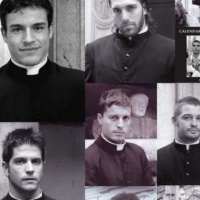The Real North Korea

A child of around 10 sits dying of starvation by the side of the road while just yards away soldiers load enough rice on to trucks to feed families for weeks.
As the young boy slumps on the grimy kerb in his filthy, oversized army jacket, locals stroll past zombie-style without even glancing in his direction or displaying an ounce of pity for his wretched plight.
Nearby his friends scavenge in disease-ridden rubbish tips for scraps of what might pass for food in a land where people are so poor they are forced to eat tree bark or even corpses, according to those on the inside.
And not far away, prisoners are herded from their harsh labour camps to frantically dig out crops from frozen ground while trigger-happy troops hover over them waiting for the one wrong move that could end with death.

And how true that is of so many – far too many – other people. From childhood, they are told that they’re useless, hopeless, stupid, whatever.
In teenage years, they’re branded “wasters” or worse.
In their mature years, they’re “feckless” or a “waste of space”
People need to be valued, cherished, and felt that they do have a contribution to make, even if they cannot recognise it.
We are all of worth in the eyes of God. None of us is worthless.
There was a 17-century French scholar, a Protestant exile from Toulouse, by the name of Muretus. Muretus became seriously ill in Lombardy and was taken to the paupers’ hospital.
As he lay on his sick bed, the physicians (thinking that he would not be able to understand the language of the learned) said, in Latin:
“Let us try an experiment with this worthless creature”
Muretus, from his bed, in barely a whisper, interrupted them, by replying (also in Latin):
“Call not ‘worthless’, one for whom Christ did not disdain to die”
You’re a good man. You’re a good woman. Or if you don’t feel it, then consider the potential you have to become that.
You’re a good person – why after all, the best of all men, was prepared to die for you.

Muretus Latinized name of Marc Antoine Muret (12 April 1526 – 4 June 1585), a French Humanist who was among the revivers of a Ciceronian Latin style and is among the usual candidates for the best Latin prose stylist of the Renaissance
–ooOOoo–
“We’re a’ Jock Tamson’s Bairns” is Lowland Scots and Northumbrian English for we’re all John Thomson’s children. Nowadays, the phrase is often used to mean “we’re all the same under the skin”.
It has been suggested as a euphemism for God, so the saying could mean “we are all God’s children”. The expression “We’re a’ the bairns o’ Adam”, conveys exactly the same meaning.
One explanation of this phrase (as recorded in the History of Duddingston Kirk) is that the Reverend John Thomson (Jock Tamson, Thamson), minister of Duddingston Kirk, Edinburgh, from 1805 to 1840, called the members of his congregation “ma bairns” (my children) and this resulted in folk saying “we’re a’ Jock Tamson’s bairns” which gave a sense of belonging to a select group.
One version attributing the origin of the adage to Thomson is that his first wife died after they had five children, he then married a widow who already had five children, and this second marriage produced another four children. When his wife then made introductions to visitors and tried to explain which family the various children belonged to, Thomson would interrupt her with the statement that “They’re a’ Jock Thomson’s bairns”

English: Portrait of The Reverend John Thomson (1778-1840) of Duddingston, pastor and painter, (Photo credit: Wikipedia)
“Jock Tamson” (John Thomson) would have also been a very common Scottish name, and would have been equivalent to such phrases as “John Doe”, “John Smith”, “Joe Bloggs” etc.
Fife’s Fishing History suggests the small fishing town of Buckhaven may have been one source for this saying. Of 160 families living in the village in 1833, over 70 were Thomsons















